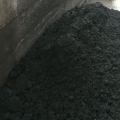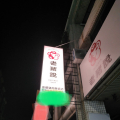|
|
 發表於 2014-1-22 21:28:39
|
顯示全部樓層
發表於 2014-1-22 21:28:39
|
顯示全部樓層
本帖最後由 蘇少儀 於 2014-1-22 07:45 編輯
是感染肉毒桿菌而不是染毒
肉毒桿菌到處都是,只要不是在厭氧的狀態下,作為動物飼料應無仿
沒想到印度是全球最大的牛奶生產國
美國第二,但在美國很少見到奶粉.美國牛奶除了鮮奶外,就是各類起司(起司的副產品就是乳清粉) .起司的產值高於奶粉.
===================================================================
NZ's Fonterra finds botulism bacteria in dairy ingredient
Sat, Aug 3 2013
By Naomi Tajitsu
WELLINGTON (Reuters) - New Zealand's Fonterra, the world's largest dairy exporter, on Saturday said it had found a bacteria which can cause botulism in some of its dairy products, prompting China to issue a recall of affected products.
New Zealand authorities said they were holding back some widely used infant formula products from supermarket shelves.
Fonterra said it had sold New Zealand-made whey protein concentrate contaminated with Clostridium Botulinum to eight customers, including food and beverage companies and animal stock feed firms, for possible use in infant formula, body building powder, and other products.
The Ministry of Primary Industries said that it had been told by Fonterra that the products in question were exported to Australia, China, Malaysia, Vietnam, Thailand and Saudi Arabia.
China, which imports the majority of its milk powder from New Zealand, asked domestic importers to recall any products which may have been contaminated by the bacteria, and ramped up scrutiny of New Zealand dairy products coming into the country.
This is the second dairy contamination issue involving New Zealand's largest company this year. In January, Fonterra said it had found traces of dicyandiamde, a potentially toxic chemical used in fertilizer, in some of its products.
The announcement comes as Fonterra is planning to launch its own branded milk formula in China, five years after its involvement in a 2008 scandal in which melamine-tainted infant formula killed at least six and made thousands ill.
Fonterra said that it was up to companies to announce recalls, adding that none had done so yet. It would not comment on the level of contamination found in the whey protein product.
"At this stage, no product recalls have been announced," Fonterra said in a statement. None of its own branded products were affected, it said.
It also said that of the eight companies affected, three were food companies, two were beverage companies and three manufactured animal stock feed.
Chinese state radio said Fonterra was notifying three Chinese firms affected by the contamination.
China's product safety agency said it had asked New Zealand to take immediate measures to "prevent the products in question from harming the health of Chinese consumers".
"The administration has also asked importers to immediately recall any possibly contaminated products and has required all local quarantine and inspection bodies to further strengthen inspection and supervision of New Zealand dairy products exported to China," the General Administration of Quality Supervision, Inspection and Quarantine said in a statement.
Clostridium Botulinum is often found in soil. The Fonterra case was caused by an unsanitary pipe at a processing plant.
The bacteria can cause botulism, a potentially fatal disease which affects the muscles and can cause respiratory problems. Infant botulism can attack the intestinal system.
The Ministry of Primary Industries said five batches of Karicare formula manufactured in New Zealand for babies aged six months and older were produced using the contaminated product.
Karicare is made by Nutricia, which operates in New Zealand, and supplied by Fonterra. The brand is popular in China.
The MPI said it had been informed by Nutricia that one batch was on a ship, another was in storage in Australia, while the remaining three were in a warehouse in New Zealand.
All of these products would be held back from the market and the MPI advised against using them.
"Since the levels necessary to cause illness are small, our focus now is on establishing whether any product available in markets is affected at all," an MPI spokesman told Reuters.
FONTERRA CHIEF TRAVELS TO CHINA
Fonterra is a big supplier of wholesale milk powder to Chinese dairy firms and also supplies multinational food and beverage companies.
It said there had been no reports of any illness linked to the affected whey protein, and that fresh milk, yoghurt, cheese, spreads and UHT milk products were not affected.
The company said that Fonterra CEO Theo Spierings would travel to China from Europe at the weekend to discuss the issue.
The announcement comes as China has started to tighten dairy import regulations to improve overall food safety standards. In recent weeks, Beijing has introduced regulations restricting the operations of smaller infant formula brands.
Foreign branded infant formula is a prized commodity in China, where consumers are distrustful of domestic brands given a series of food safety scandals. This has created a lucrative market for foreign brands, including global heavyweights Nestle, Danone and Mead Johnson.
While Fonterra is a major supplier of bulk milk powder products used in formula in China, it has stayed out of the branded space after the melamine incident. It had held a stake in Chinese dairy company Sanlu, which collapsed after it was discovered to have added melamine to bulk up formulas in 2008.
(Additional reporting by Jonathan Standing and Langi Chiang in Beijing; Editing by Ron Popeski)
|
|

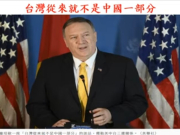
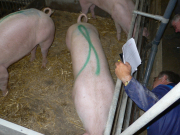
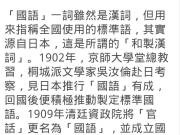
![越南非洲豬瘟疫苗蒙陰影 上百豬隻接種後死亡[轉貼]](data/attachment/block/3e/3e723490e252eebc3bc1a403febd226e.jpg)
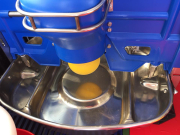
![[轉貼]從上市9頭到14頭 -- 我的養豬專業養成之路。](data/attachment/block/3c/3c17fd6b5c1b8cff34fdc7342238e082.jpg)
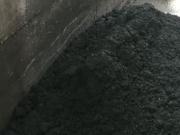
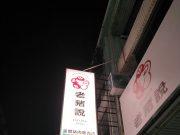
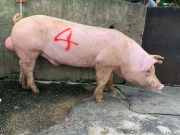
![[轉貼]這個倒霉王國,因為一隻老鼠慘遭滅國 .....](data/attachment/block/3f/3ffb7b6b8ec14613dc077bdd7603e3a5.jpg)
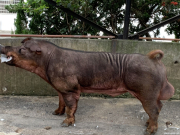
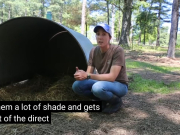


 IP卡
IP卡 狗仔卡
狗仔卡 發表於 2013-1-25 14:58:01
發表於 2013-1-25 14:58:01
 提升卡
提升卡 置頂卡
置頂卡 沉默卡
沉默卡 喧囂卡
喧囂卡 變色卡
變色卡 搶沙發
搶沙發 千斤頂
千斤頂 顯身卡
顯身卡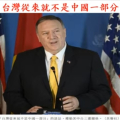
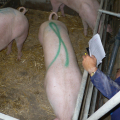
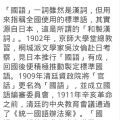
![越南非洲豬瘟疫苗蒙陰影 上百豬隻接種後死亡[轉貼]](data/attachment/block/d2/d2539d8909b33105a4f3e3b9b2e8a659.jpg)
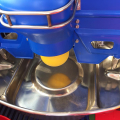
![[轉貼]從上市9頭到14頭 -- 我的養豬專業養成之路。](data/attachment/block/81/819f9b837f86a7e00498f8d95b8b9176.jpg)
